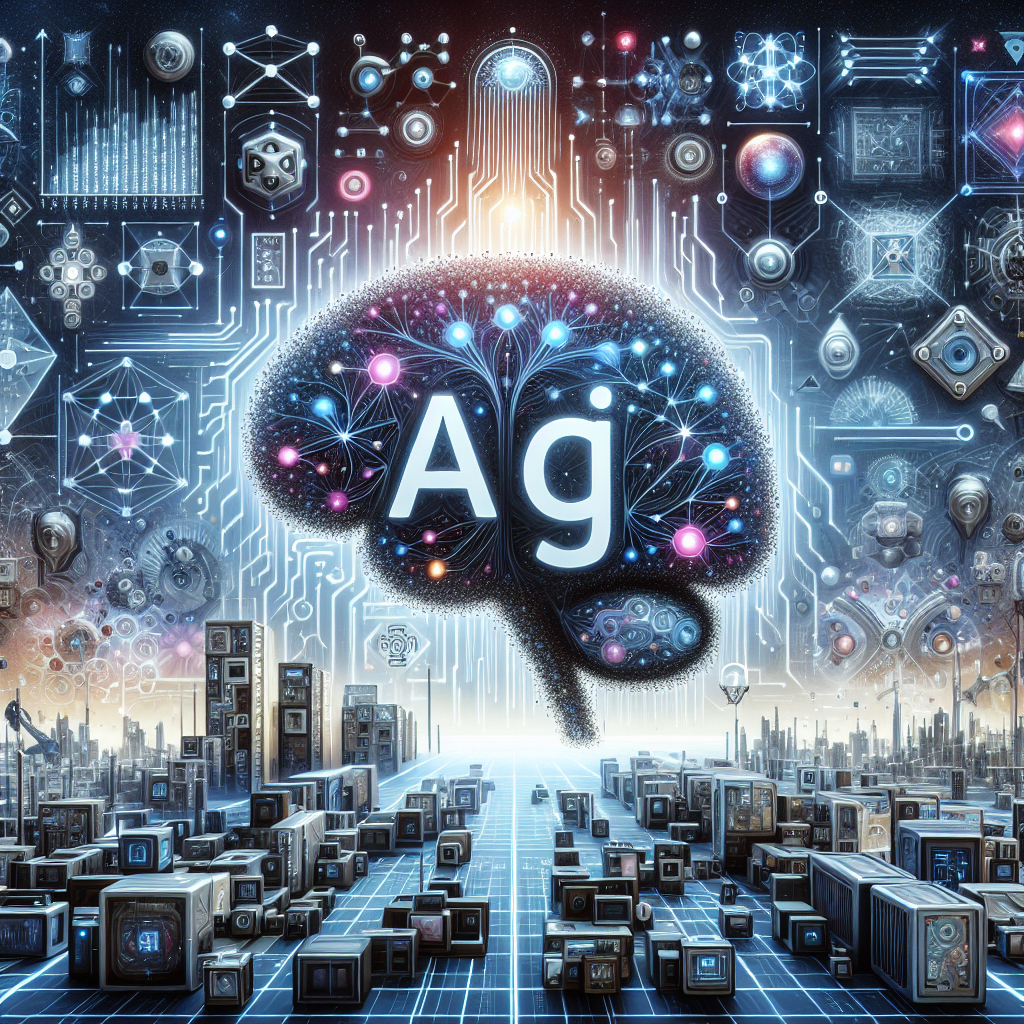The Rise of Artificial General Intelligence: How AGI is Shaping the Future
Artificial General Intelligence (AGI) is a term that refers to the ability of a machine to perform any intellectual task that a human can do. While Artificial Narrow Intelligence (ANI) systems are designed to perform specific tasks, AGI aims to replicate the broad range of cognitive abilities that humans possess. The development of AGI has the potential to revolutionize industries, improve efficiency, and change the way we live and work. In this article, we will explore the rise of AGI, its impact on society, and the challenges and opportunities it presents.
The Current State of Artificial Intelligence
Artificial Intelligence (AI) has made significant advancements in recent years, with applications ranging from virtual assistants like Siri and Alexa to self-driving cars and advanced medical diagnostics. However, most of these AI systems are limited to specific tasks and lack the ability to generalize their knowledge to new situations. This is where AGI comes in, aiming to create machines that can think, learn, and adapt like humans.
The development of AGI is still in its early stages, with researchers working on creating algorithms and systems that can mimic human intelligence. While progress has been made in areas such as natural language processing, computer vision, and robotics, creating a truly intelligent machine that can understand and reason about the world remains a challenge. AGI is a complex and multifaceted problem that requires advances in multiple fields, including neuroscience, computer science, and cognitive psychology.
The Impact of AGI on Society
The rise of AGI has the potential to have a profound impact on society, changing the way we live, work, and interact with technology. AGI systems could revolutionize industries such as healthcare, finance, and transportation, improving efficiency, reducing costs, and increasing productivity. For example, AGI-powered medical diagnostics could help doctors make more accurate diagnoses, while self-driving cars could reduce accidents and traffic congestion.
However, the widespread adoption of AGI also raises ethical and social issues that need to be addressed. Concerns have been raised about the potential job displacement caused by automation, as AGI systems could replace human workers in many industries. There are also concerns about privacy and security, as AGI systems could have access to vast amounts of personal data and be vulnerable to hacking and misuse.
The Challenges and Opportunities of AGI
Creating AGI is a complex and challenging task that requires advances in multiple areas of research. One of the biggest challenges is developing algorithms that can learn and generalize from data, as well as understand and reason about the world. AGI systems also need to be able to communicate effectively with humans and adapt to new situations, which requires advances in natural language processing and cognitive science.
Despite these challenges, the development of AGI also presents a number of opportunities for research and innovation. AGI systems could help us better understand the nature of intelligence and consciousness, as well as develop new technologies and applications that improve our quality of life. AGI has the potential to revolutionize fields such as healthcare, education, and entertainment, creating new opportunities for growth and development.
FAQs
Q: When will AGI be achieved?
A: The timeline for achieving AGI is uncertain, as it depends on a number of factors such as research progress, funding, and technological breakthroughs. Some researchers believe that AGI could be achieved within the next few decades, while others think it could take much longer.
Q: What are the ethical implications of AGI?
A: The development of AGI raises a number of ethical issues, including concerns about job displacement, privacy, security, and the potential misuse of AI systems. It is important for researchers and policymakers to address these issues and ensure that AGI is developed in a responsible and ethical manner.
Q: How will AGI impact society?
A: AGI has the potential to revolutionize industries, improve efficiency, and change the way we live and work. However, the widespread adoption of AGI also raises concerns about job displacement, privacy, security, and other ethical issues that need to be addressed.
Q: What are the risks of AGI?
A: There are a number of risks associated with the development of AGI, including job displacement, privacy and security concerns, and the potential misuse of AI systems. It is important for researchers and policymakers to address these risks and ensure that AGI is developed in a responsible and ethical manner.
In conclusion, the rise of Artificial General Intelligence has the potential to revolutionize industries, improve efficiency, and change the way we live and work. While there are challenges and risks associated with the development of AGI, there are also opportunities for research and innovation that could benefit society as a whole. It is important for researchers, policymakers, and the public to engage with the ethical and social implications of AGI and ensure that it is developed in a responsible and ethical manner.

